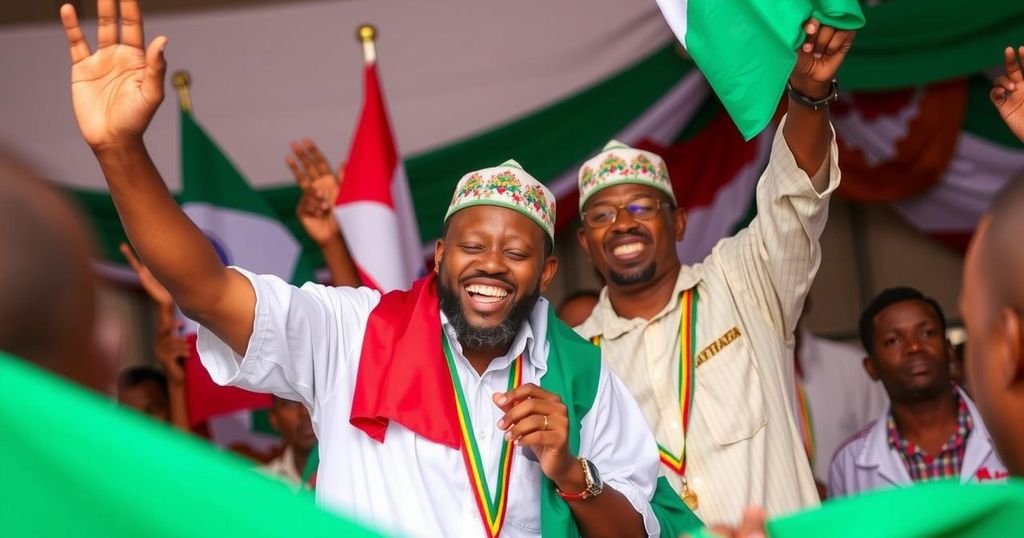Chad’s Ruling Party Secures Majority Amid Opposition Boycott
Chad’s ruling Patriotic Salvation Movement party achieved a majority in the parliamentary elections, winning 124 out of 188 seats amidst an opposition boycott. This marks Chad’s first parliamentary election in over a decade, amid claims of electoral unfairness and major security challenges facing the country.
In the recent parliamentary elections held in Chad, the ruling Patriotic Salvation Movement party secured a significant majority, winning 124 of 188 available seats, according to provisional results released by Ahmed Bartchiret, the head of the electoral commission. This election marked the first parliamentary exercise in over ten years and was largely unopposed, as more than ten opposition parties, including the prominent Transformers party led by Succes Masra, boycotted the elections, labeling them a mere “charade.” With a voter turnout of 51.5%, the election is viewed as a critical step in Chad’s transition toward democracy following the military rule of President Mahamat Idriss Deby since 2021, after him taking power following the death of his father, longtime president Idriss Deby Itno.
Chad has experienced significant political upheaval in recent years, transitioning from decades of authoritarian rule under Idriss Deby Itno to military leadership under his son, Mahamat Idriss Deby. After Deby’s military takeover, he promised to restore democracy and decentralize power, leading to the organization of these parliamentary elections. However, the absence of credible opposing candidates and the boycott by key parties raised questions about the legitimacy of the elections, echoing concerns regarding Chad’s broader democratic transition amidst ongoing security challenges.
These recent elections have further solidified President Mahamat Idriss Deby’s power within Chad, as he navigates a complex landscape marked by opposition boycotts and ongoing security threats. The significant victory of his party amid claims of electoral insincerity reflects the challenges facing democratic processes in the nation. As Chad continues to grapple with regional instability and military ties, the future of its governance and potential for genuine democratization remains in question.
Original Source: www.euronews.com




Post Comment